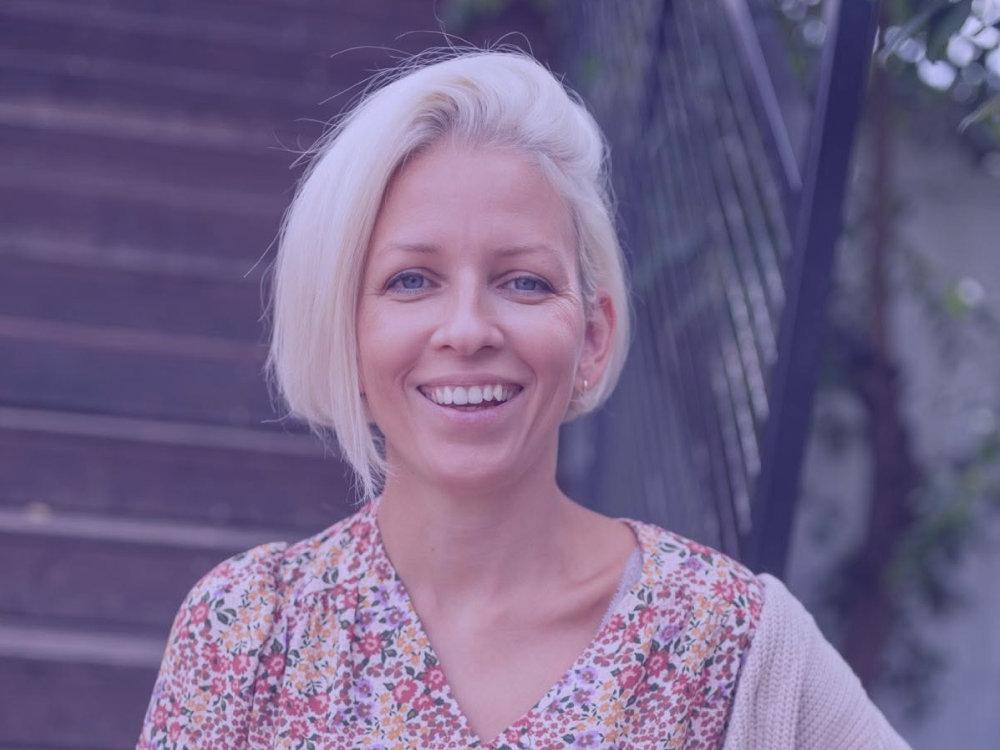Table of contents
Lynne Coppillie is an online native English teacher, teacher trainer and English examiner based in Valencia, Spain. She's been teaching in various countries for nearly 30 years and has been a fan of Leonardo English for the last year.
I asked Lynne if she'd be happy to share a little bit about how she uses podcasts with her students, and she kindly agreed. Thank you Lynne!
My teaching background
My name is Lynne and I'm an online English teacher with my own business, Put it like this... .
I've been listening to the podcasts from English for Curious Minds and using them with my students for over a year now and am a big fan both as a teacher and a listener!
I thought I would share a little about how I use these podcasts to help my students in their English language learning journeys.
At University I first studied English and French and then later European Literature so I guess languages have always been interesting for me. I also loved working abroad and travelling so, after my studies, I did a course to learn how to teach English and off I went ! I have lived and worked in several countries, France, Canada, Germany, Guinea Bissau and, for the last 25 years, in Valencia, Spain.
I've always taught adults - at first, it was all professional English to help people work better in the language but, in Spain, I also started teaching general English and got involved in teacher training too.
For a good part of my teaching career I worked for the British Council but since 2020 I have been running my own on-line teaching business Put it like this... The name of the business says a lot about how I view teaching English.
People use language to communicate and for me it's very important that students find their own voices in English to express what they want to say about the world or themselves. I don't usually offer standard courses but first find out about a student's objectives and then tailor-make a course to help them reach those specific goals.)
Some of my students say they are tired of course books, doing exercises and grammar and really want to improve their speaking skills and fluency.
When I design these types of courses, we usually begin talking about familiar topics - most people love talking about themselves, their families, their work and achievements.
However, a more difficult challenge when learning another language is when you have to be able to talk about wider, more abstract topics (actually a requirement at C1 and C2 levels) - things you know little about or might be unprepared for.
This is where these wonderful podcasts at Leonardo English come in.
How I Teach English With Podcasts
A format I often use for my online speaking classes is to set a podcast to listen to for homework and then discuss it in the speaking class with my student.
I always give a couple of "Before listening..." questions to my students to prepare their minds before listening to any podcast (eg. tell me 3 things you know about the topic and 3 things you'd like to find out).
I recommend you always do this before listening to anything because it makes the listening experience so much easier. In real life, we rarely listen to every word but spend our time comparing and contrasting what we actually hear to what we believe.
It's always important to have a purpose while listening (this keeps you attentive), so speculating a little about the topic before you listen puts your brain on the right path. You'll recognise related vocabulary, for example, much more easily than if you listen "cold".
While my students listen to the podcast I recommend they just relax and try to get the general gist of what is going on - it's not necessary to remember or understand all the details - they can listen again, ask me in the speaking class or, if they're a member of Leonardo English, they can check the transcript and take their time looking up unknown words in a dictionary or in the glossary.
However, I always ask my students to pick 5 words or expressions which they noticed and would like to incorporate in their own speaking repertoire.
Remember we learn our own mother tongues by imitation and this is what you have to do when learning foreign languages too, but you should always select things that YOU like and can see yourself needing. I insist on selecting 5 because I think attempting to learn more for your own productive language in each podcast is unrealistic.
Before we know it, our class is over and often we've barely scraped the surface (my students then decide if they want a continuation of the discussion in another class or a new podcast).
I use this format for other podcasts too of course but what I particularly like about English for Curious Minds is that Alastair speaks slowly and very clearly without "dumbing down" the language.
My students that are B1+ can usually follow him and the real English he uses in every podcast still offers plenty to learn from even for students of C2.
For teachers, these podcasts are a goldmine of language and offer wonderful springboards for speaking practice. For learners of B1 upwards they can offer an introduction to gaining confidence in listening skills and at higher levels provide a rich source of vocabulary. And finally, for everyone I think, they're just really, really interesting !
If anyone is interested in having speaking classes related to English for Curious Minds or any other kind of help to discover your own voice in English, feel free to contact me via my website at putitlikethis.com




